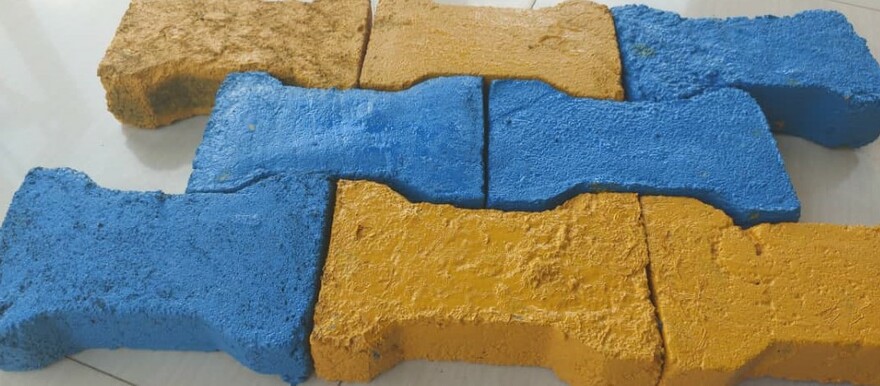The Community Development Centre (CDC) in Yei River County announced on Tuesday its innovative approach to addressing environmental pollution and climate change by utilizing discarded plastic materials to manufacture bricks.
CDC is a Community Concern Organization dedicated to ‘Building Strong and Resilient Communities’ in Yei River County, Central Equatoria State.
South Sudan faces numerous environmental challenges, including soil degradation and the subsequent loss of biodiversity and wildlife habitats. Excessive littering of plastic materials further contributes to environmental pollution, resulting in soil fertility losses and the disruption of microbial ecosystems.
Speaking to Radio Tamazuj, Amani Isaac, an Environment and Food Security department employee at the CDC, highlighted the prevalence of plastic waste in the town. He said the CDC’s objective is to repurpose these materials into building supplies, with a focus on creating bricks to promote cleanliness and environmental safety in Yei.
“After conducting extensive research and observing the town, we realized there is a significant waste issue in Yei. We proposed the idea and subsequently engaged government institutions, NGOs, and other stakeholders to establish a forum for discussing environmental conservation matters,” Amani said.
“We questioned ourselves about the next step after collecting plastic bottles, and that is when the concept of recycling plastic materials arose. We suggested using these materials to produce building materials, such as plastic bricks, which can serve as ventilation in houses, as well as in the design of compounds and road construction,” he added.
Amani emphasized that collecting and recycling plastic materials will not only reduce environmental pollution but also provide self-employment opportunities for young people, thereby improving their livelihoods. “Plastic materials contribute to environmental pollution. Collecting and recycling them breaks the cycle of pollution. Through our project, we plan to train community members, particularly youth, to engage in plastic collection and recycling. This initiative will create employment for the youth, enabling them to achieve financial independence,” Amani asserted.
Harriet Sunday, the sole female beneficiary of the plastic brick-laying initiative, encourages women in the community to participate in similar initiatives to enhance their living standards when training programs are extended.
“Although the training I attended was challenging, I persevered and learned valuable skills. Now, I find it much easier to introduce the project to the community. I urge all women to seize the opportunity when the training is offered in their locality. Collecting and recycling plastics, as well as the plastic brick component of the project, should involve everyone. Women must take advantage of the training when it becomes available,” advised Harriet.
Andrew Lasu Samuel, an environmental activist and Program Manager at the CDC in Yei, emphasizes that environmental pollution and climate change pose global concerns, not limited to South Sudan alone. Recycling plastics represents a crucial step in combating climate change and reducing environmental pollution within the community.
“Considering the global perspective on climate change and environmental protection, nations worldwide are engaging in extensive campaigns to find solutions and community-driven approaches to address the hazardous impact of plastic materials, including minimizing plastic production in factories,” stated Lasu. “We acknowledge the difficulty of living without plastic items; however, it is equally important to understand the risks associated with their use. The global nature of this campaign means that it is not solely South Sudan’s problem. Mere admonishments to refrain from littering plastic bottles on the streets of Yei are insufficient. Therefore, we have taken two additional steps: collecting plastic bottles and recycling them into a safe and usable product.”




